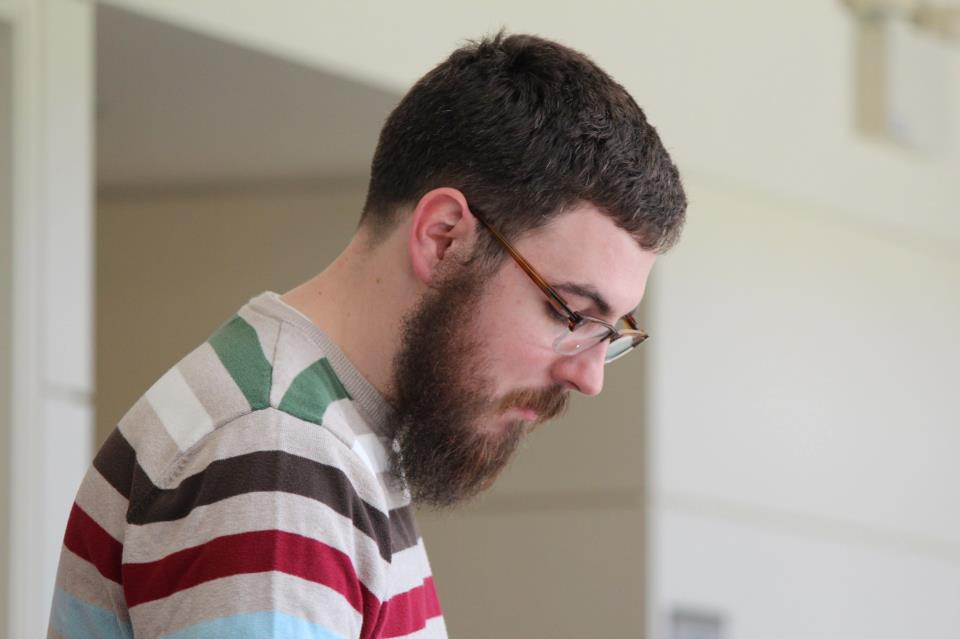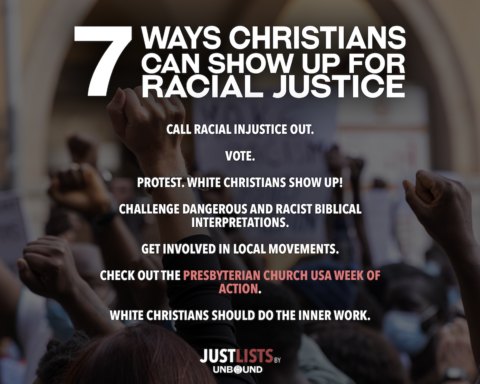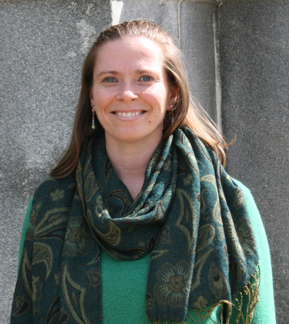McCormick Theological Seminary
By Wes Pitts View and print as PDF.
View and print as PDF.

Where I am from, churches do not do social justice. At best, they support non-profit organizations, which do the justice work for them. Social justice is farmed out to the secular world, while churches focus on spiritual formation.
My view of the role of church changed when I arrived at McCormick Theological Seminary.
McCormick represents the progressive side of the Presbyterian Church (U.S.A.), but our students are all over the map. We have conservative and liberal students; women and men; queer and straight; Korean, Puerto Rican, Colombian, White, Black, and multiracial students; folks from Presbyterian, Pentecostal, Unitarian, Baptist, and Catholic traditions. The list could go on. Diversity of this breadth means our commitments to justice are equally diverse. McCormick provides space through the classroom and beyond to engage in conversation about our differences and similarities, and to simply learn from one another.
Being located on the Southside of Chicago provides another lens through which our students view justice. Chicago is one of the most racially segregated cities in the nation and has struggled with gang violence in the poorest neighborhoods (which also happen to be neighborhoods where people of color predominantly reside). No matter our racial heritage, socioeconomic status, or cultural background, our students are committed to racial, sexual, and economic justice. This means we have to, at the very least, acknowledge and talk about racism, sexism, and classism.
Our students have created a variety of groups to open dialogue among these justice lines. These include, but are not limited to: Acts 10:15, an organization which discusses LGBTQ concerns; Eco-Justice, discussing environmental justice; KASA, for Korean students; PASO, for African and African American students; and AELM, for Hispanic students. While most of our student groups focus on the issues particular to their social location, each provides opportunities for the entire student body to participate. Just this year our student groups have provided the McCormick community with opportunities to discuss sexual theology from a Pauline perspective, hear a sermon on the transfiguration from a transgendered perspective, participate in workshops on anti-racism training, travel to Springfield to lobby for a minimum wage increase, and share meals with our students of differing cultural heritage. Students have also been active in the Occupy movement and in demonstrations for racial justice surrounding the death of Trayvon Martin.
___________________________________________
As a child of the South, it seemed odd to me that a church would fight for issues of justice—where I am from, non-profit organizations do that work and the church nominally supports them. Since being in this city, I have seen churches and pastors fighting for immigration policy change, creating shelters for homeless LGBTQ youth, and being the center for
neighborhood revitalization.
___________________________________________
Student involvement in issues of justice is not limited to extracurricular activities, however. Our classrooms are built upon them. McCormick is dedicated to being Cross-Cultural, Ecumenical, Urban, and Reformed—not an easy task. McCormick offers several degrees (Master of Arts in Urban Ministry, Master of Arts in Discipleship Development, and Master of Divinity) for those who want to be involved in leadership in their communities of faith, to fight for justice, and to share the peace of Christ with all.
Within these programs, McCormick offers courses that lift up ministries of justice. Some of these classes include: The Church and Social Change, Food (focusing on food justice), Religious Pluralism and Ministry, Sexual and Domestic Violence, The Bible & Economic Justice, Love & Justice: Christian Ethics of Bonhoeffer & M.L. King Jr., and Culturally Attentive Ministry. Our professors are just as diverse as our student body and come from many different backgrounds and are well qualified to facilitate these discussions. McCormick is proud to have a Jewish New Testament professor and a Muslim adjunct professor who deepen our awareness of the world in which we live and help foster a passion for interfaith dialogue.
As a first year student, I am still in the beginning stages of my discernment process. I do not know yet whether parish ministry is right for me. However, being in Chicago has been a real eye-opener. As a child of the South, most churches I experienced were not concerned with issues of justice. Entering seminary it seemed odd to me that a church would fight for issues of justice—where I am from, non-profit organizations do that work and the church nominally supports them. Since being in this city I have seen churches and pastors fighting for immigration policy change, creating shelters for homeless LGBTQ youth, and being the center for neighborhood revitalization.
If I do go into parish ministry my hope is to bring the experience I have had at McCormick and in Chicago to that congregation. I would want to work with a congregation of folks who have never taken part in justice advocacy, and develop a ministry focused on providing a microphone for the silenced, shelter for the homeless, food for the hungry, water for the thirsty, and hope to the hopeless. I still have two years before graduating to think about how this will work out, or if it will at all. McCormick is a place where many of the skills I will need are available if I just seek them out, and for that I am very thankful.
My hope is that the Presbyterian Church (U.S.A.) becomes a church for those in need—both spiritually and materially. Jesus called us to be partners in his justice: “I give you a new commandment: Love each other. Just as I have loved you, so you also must love each other. This is how everyone will know that you are my disciples, when you love each other” (John 13:34-35). Love is not easy or convenient, but we must be a church of love, not just for ourselves and our community, but with all of God’s good creation. The Presbyterian Church (U.S.A.) can achieve this by seeking justice in all that it does. This is the call for us as the people of God and the body of Christ.
________________
Wes Pitts is a first year MDiv student at McCormick Theological Seminary. Originally from Atlanta, GA, Wes first became passionate about justice advocacy through serving in homeless shelters in Atlanta and Charlotte, NC. He spends his time cooking for his wife and playing with his two dogs.





Unbound Social